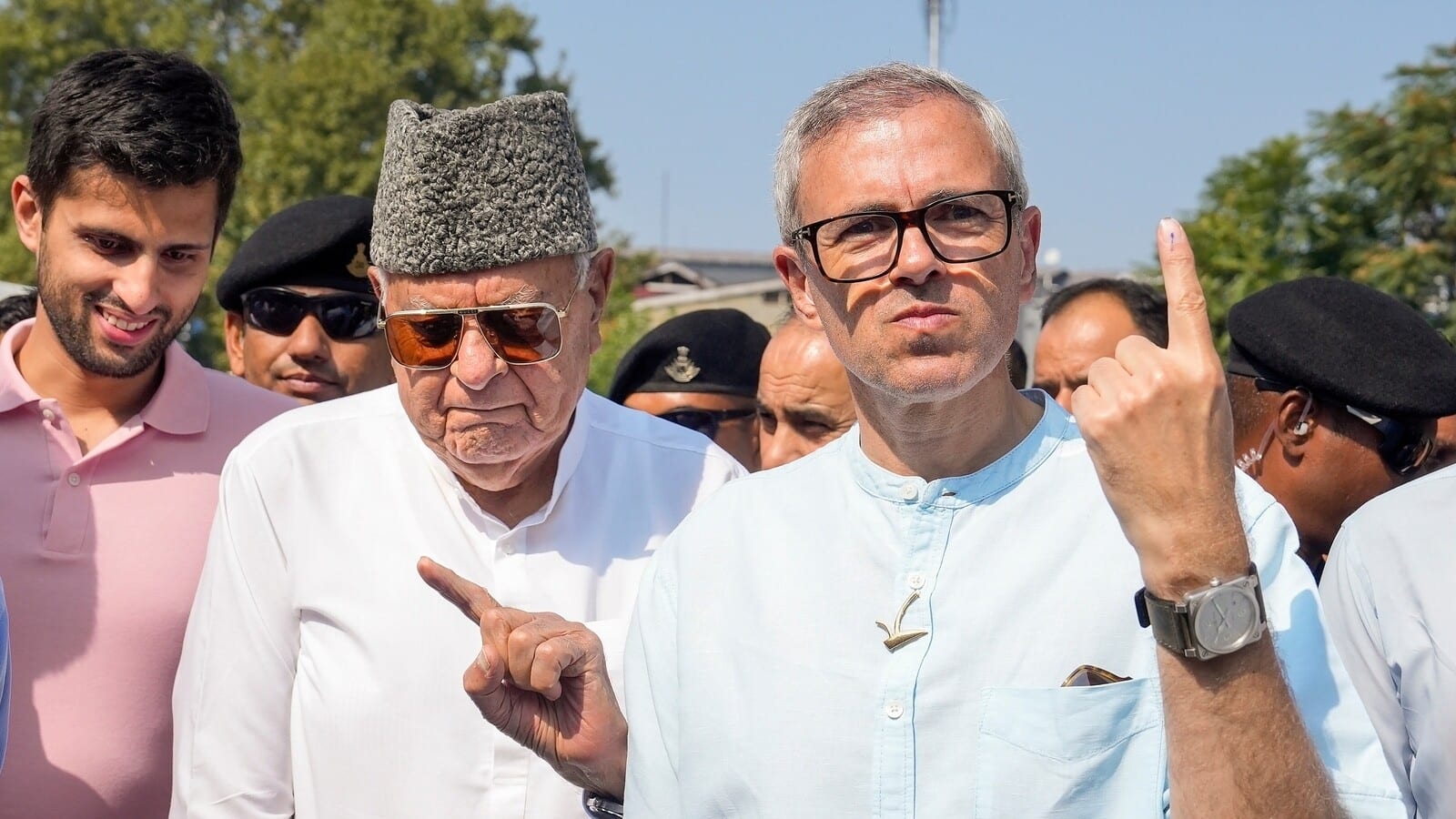
J&K polls: Omar Abdullah leads from Ganderbal in early trends
What's the story
As early trends started trickling in for the Jammu and Kashmir Assembly elections, National Conference (NC) vice president and former Chief Minister Omar Abdullah was leading from the Ganderbal constituency in Central Kashmir.
He is also contesting from Budgam, another Central Kashmir constituency. Both constituencies voted in the second phase of the three-part elections on September 25.
Political legacy
Ganderbal, a stronghold for National Conference
Ganderbal has always been an NC stronghold, having elected three generations of the Abdullah family.
NC founder Sheikh Mohammad Abdullah first won the seat in 1977.
His son Farooq Abdullah followed suit in 1983, 1987, and 1996.
Omar Abdullah was elected from this constituency in 2008 after starting his political career in 1998 representing Srinagar constituency in Lok Sabha.
Election strategy
Omar Abdullah's political journey
After winning from Ganderbal in 2008, Omar was the chief minister of the erstwhile state from 2009 to 2014.
In 2014 assembly elections, he won from Beerwah Assembly seat near Budgam.
This year, he is contesting from two seats—Budgam and Ganderbal—to show NC's strength.
The entry of jailed cleric Sarjan Wagay and Sheikh Ashiq from Engineer Rashid's Awami Ittehad Party has made the contest tougher in Ganderbal.
Election battle
High-stakes contest for National Conference in Budgam
The Budgam assembly segment is also a traditional NC bastion. While Omar and seven other candidates are in the fray, the spotlight is on a direct battle between Omar and People's Democratic Party candidate Agha Syed Muntazir.
The contest challenges NC's dominance in the region.
Omar is supported by NC stalwart and three-time Budgam winner, Agha Syed Ruhullah Mehdi, who has long shaped Budgam's political landscape.
Political position
Omar Abdullah's stance on J&K's statehood and elections
Notably, Omar had earlier said he wouldn't contest assembly elections until full statehood was restored to Jammu and Kashmir.
However, he softened his stance when the Election Commission of India announced the poll schedule.
As per the seat-sharing pact, National Conference contested 51 seats and Congress 32, with a friendly contest on five seats. Two additional seats were reserved for allies, CPI (M) and the National Panthers Party.